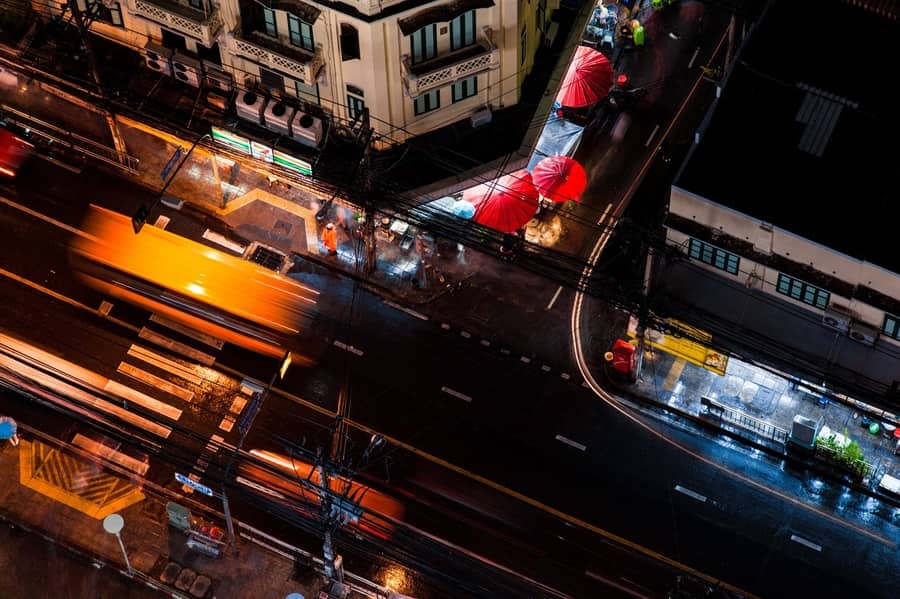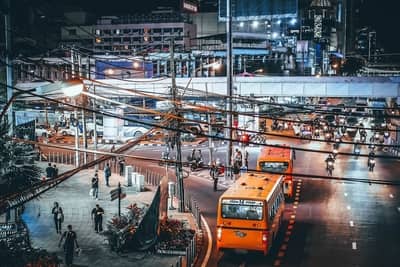
Categorizing countries as First, Second, or Third World is a remnant of Cold War terminology, but “Third World” is often viewed as synonymous with “developing country”.
Thailand is a developing country, but, according to the definitions established by the United Nations during the 1940s, it is a First World country. Thailand was classified by the United Nations as an ally to the USA and capitalism, marking it as “First World”.
Being a developing country, Thailand is often categorized by today’s standards as “Third World”, but it’s interesting that Thailand is the only Southeast Asian nation not colonized by the West and an ally to the USA during the Cold War.

Why is Thailand a Developing Country?
After personally visiting Thailand, it’s easy to see why it is considered a developing country due to the infrastructure and laws. It feels like it’s lagging behind, and it’s hard to explain exactly what I mean unless you’ve visited there yourself. As a country that’s thousands of years old, there is an age-old culture that is ingrained in day-to-day life.
For example, one of the first things I noticed while driving through Bangkok is the countless amount of stray dogs roaming the streets. It wasn’t until 2014 that animal cruelty and protection laws were put in to place to prevent consumption of dog meat.

Another thing I noticed was that the power lines have a ridiculous amount of cables which is a major risk in case of a car ramming into a power pole and sending hundreds of live wires jumping throughout the street.
Public restrooms often have “squats” instead of toilets, which are basically a hole in the ground and these same restrooms contain public toothbrushes.
Highways in Bangkok are free-for-all and that has more or less become the norm in other cities and rural areas. Emergency lane? Nope, it is just another lane. Motorcycles speed through gaps in traffic jams, which are impossible to avoid, and getting two cars through alleyways simultaneously is an often occurrence and is always an extremely tight squeeze.
Homes are often erected out of spare pieces of wood or tin, very common to see, especially near rivers, and food peddlers are literally everywhere (they make amazing food, not advocating change here).
Even with all the ways Thailand can improve its laws and infrastructure, the people are absolutely amazing. Thai culture is extremely friendly, remarkably so. People will welcome you into their homes and provide the best accommodations you can hope for. It’s really an incredible culture.
There is a lot of wealth and prosperous business as exports for goods (hard-drives for example) are in high demand. Thai goods have a great reputation and are affordable due to the currency exchange rates between the Thai Baht and US Dollar.
Thailand performs very well compared to other Southeast Asian countries and has the second highest GDP behind Indonesia. They also rank very well in terms of their Human Development Index ranking. Please see below:

First World Countries
Capitalist world and allies to the USA during the Cold War.
Second World Countries
Communist countries and countries allied with Russia during the Cold War.
Third World Countries
All other countries not classified as First or Second World. Includes very rich (Saudi Arabia) and very poor (Mali) countries but typically refers to the very poor.
Characteristics of Third World Countries
Common characteristics of very poor Third World countries includes income inequality and poor economic conditions.
- Low Income per Capita
- Economic Dependence on Foreign Countries
- Low Human Development Index ranking
- Political Instability
Arguably the only one of these points that Thailand hits is political instability as there was a recent and ongoing political crisis that began in 2013-2014. The military leader currently holds a majority of power in government.
I’ve gone into more detail about Thailand’s economy and political instability in this article (click for link).
Also, if you’re interested in the relationship between Thailand and China, check out this article (click for link).
